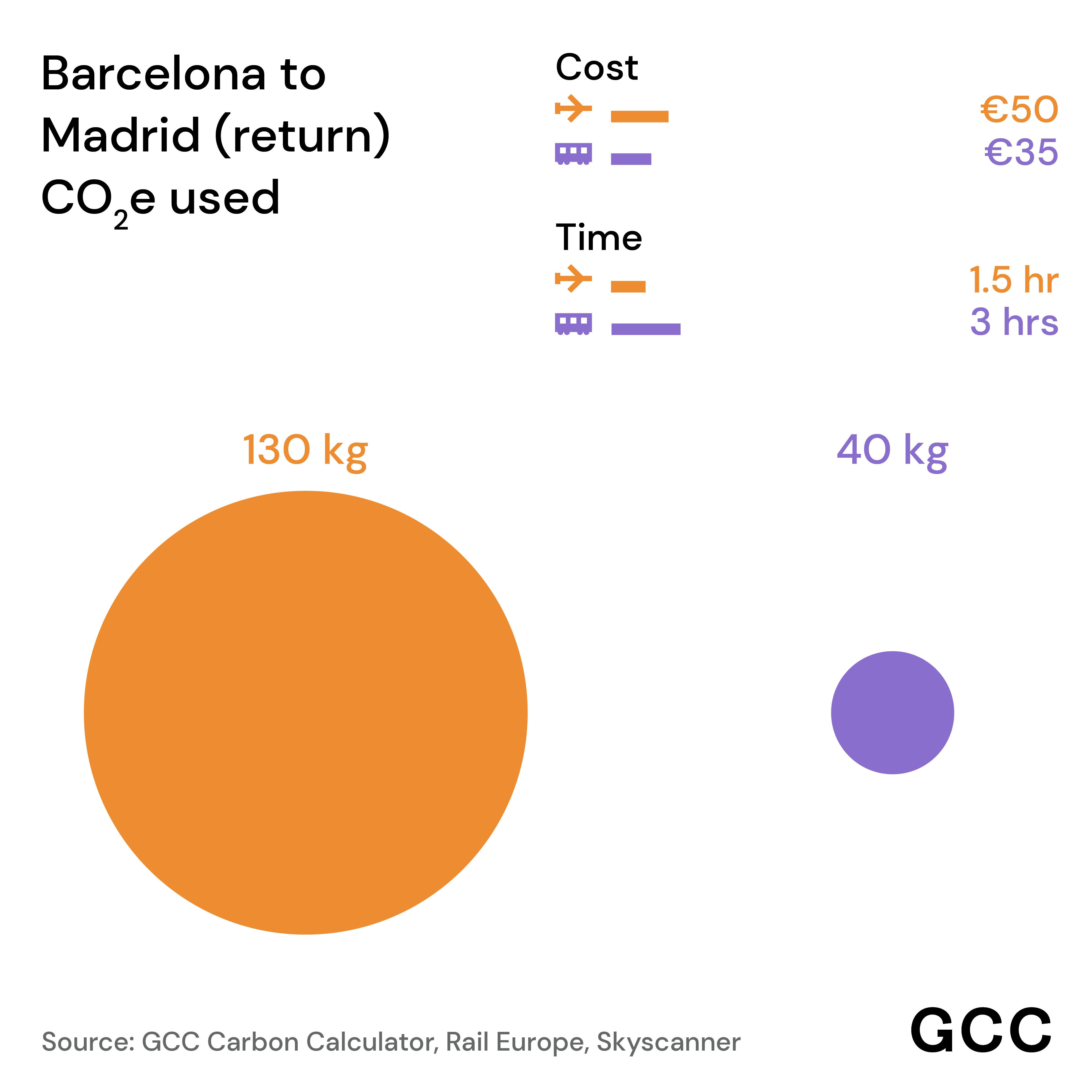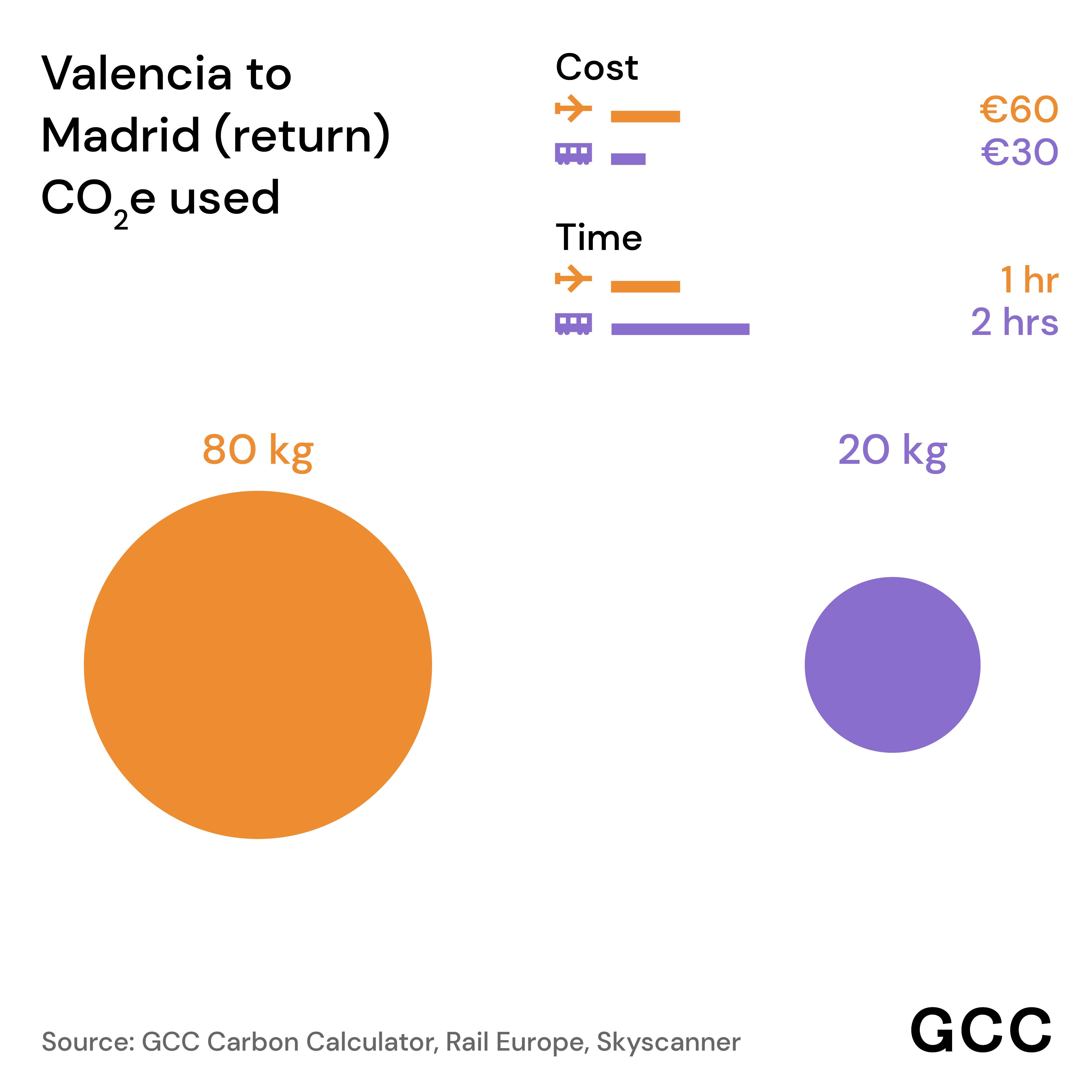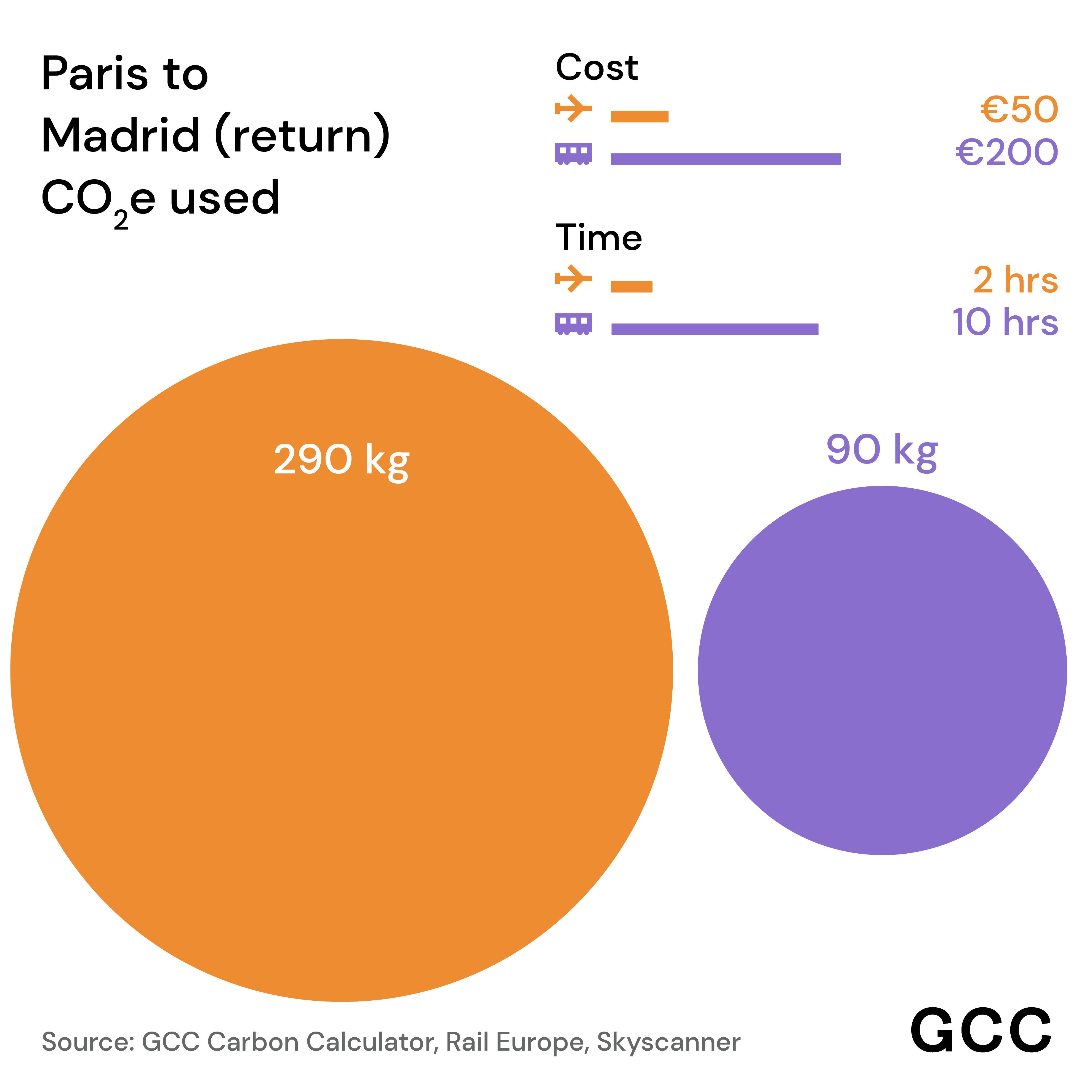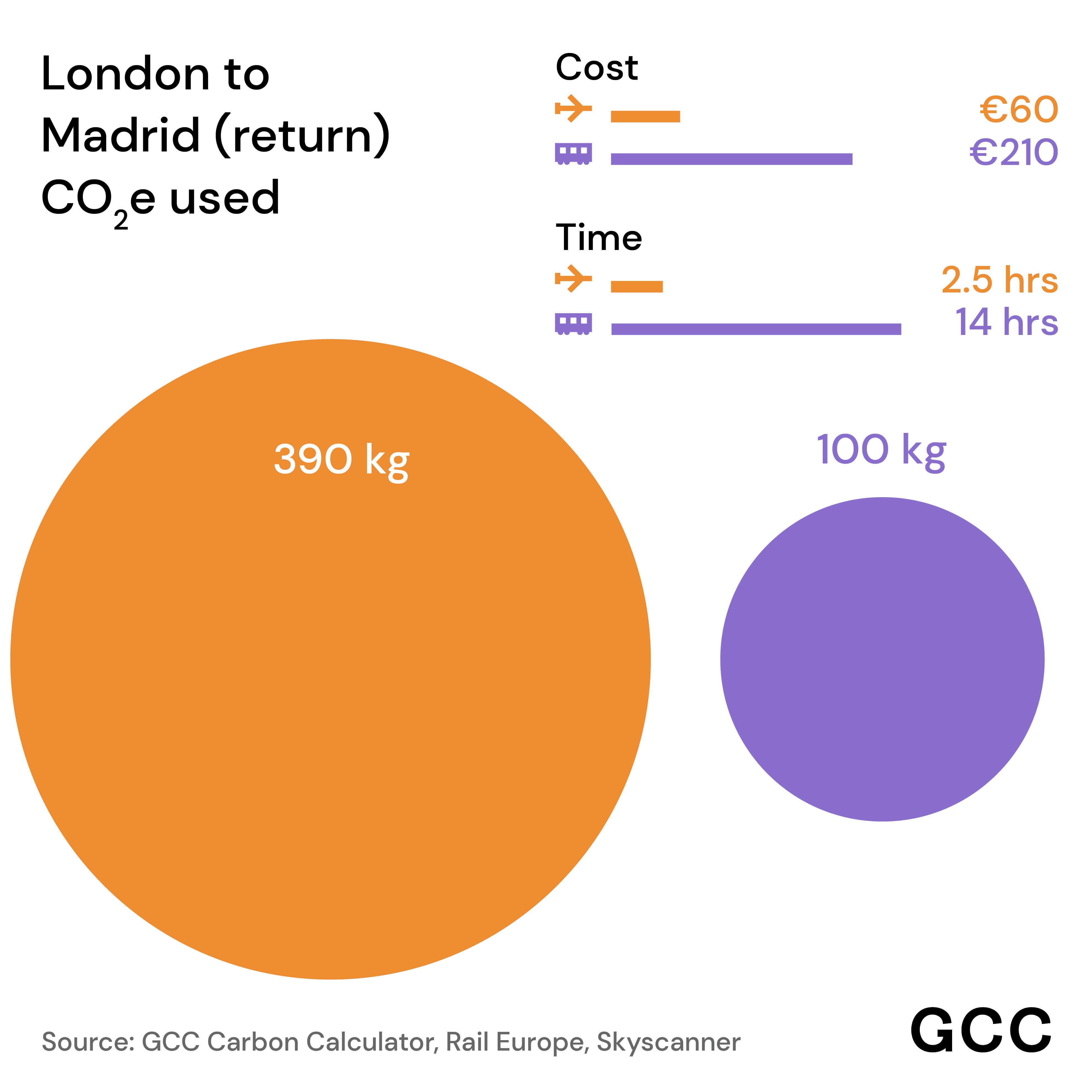How to take the train to… ARCOmadrid
Spring is drawing closer, and many of us in the GCC community are considering our travel plans for the year. ARCOmadrid, which takes place from 6th - 10th March 2024, may be one key date on your calendar that is fast approaching.
As part of our ongoing Climate Conscious Travel campaign, GCC is encouraging everyone who is able to take the #TraintoARCOmadrid. Choosing train travel over a flight will significantly reduce your carbon emissions.
So why is it important to travel climate consciously, and how can we plan our journeys to Madrid this March?
Climate Conscious Travel
At GCC we advocate for climate conscious travel. This means seriously considering the impact of our journeys, and, importantly, addressing the amount that we fly.
This is because stepping on a plane is the single most carbon-polluting action we can take as an individual in our everyday lives. The data we’ve collected through GCC’s carbon calculator shows that air travel is typically one of the biggest contributors to most galleries’ carbon footprints.
We acknowledge that the art sector is an international community built on connection, and it’s not always realistic for us to stop travelling entirely. But by taking advantage of the public transport connections that already exist, particularly within Europe, we can reduce or remove our reliance on flights, stay on track to meet 2030 emissions reductions targets, and continue to meet and connect with each other.
In other words, taking the train instead of flying is one major way that we can all reduce our impact, now.
ARCOmadrid
For those visiting Madrid this March, there are many realistic alternatives to flying, particularly for those travelling within Spain and mainland Europe.
If you’re able, GCC encourages everyone to take the #TrainToARCOmadrid. Rail travel is the fastest and most practical alternative to getting on a plane.
While the journey time may be longer, inter-city train journeys that take you from centre to centre can save time spent travelling to and from airports and time spent in transit. For some routes, the overall difference is negligible.
It’s also worth considering how we think about our journeys. With more comfortable seating, extra space, WiFi connectivity, and power sockets, train journeys can be treated as a more scenic day in the office.
Meanwhile, stopovers and connections can be a chance to take in other cities—if you’re travelling to London from Madrid, could you plan some meetings or an exhibition visit in Paris or Barcelona en route?
GCC’s Managing Director, Heath Lowndes, recently took the train from London to Madrid for a conference, stopping in Barcelona to meet colleagues and taking in the scenery across France and Spain along the way.
We know that travel costs are important, but train travel between well-connected cities, especially if you book far in advance, can be similar in price to short-haul flights.
Most importantly, the carbon savings we make by taking the train are huge. We’ve compared emissions generated by return journeys by train and plane between Madrid and Barcelona, Valencia, Paris, and London–and you can see what a difference it makes:




Tips for travel
Whether you’re travelling from within Spain or beyond, there are plenty of resources available to help you plan and book your journey.
The Man in Seat 61 has published a wealth of in-depth guides to train travel all over the world, including hundreds of routes within Europe. Trips can be planned and booked in advance using websites like Rail Europe or Trainline.
For visitors to ARCOmadrid travelling with Spain, there are around 38 trains per day running between Barcelona and Madrid. It’s a direct connection, so there are no changes, and journey time is an average of 2 ½ hours. When booked seven days in advance, the average cost of a return ticket is around €35.
Many consider Spain to have one of the best rail networks in Europe, and fares are generally very affordable, especially when booked in advance. There are direct routes to Madrid from cities including Seville, Valencia, Bilbao, Malaga, and Murcia.
If you’re travelling from further afield, many trains from Paris connect through Barcelona, with the fastest journey from Paris to Madrid taking around 9 ½ hours, including one stop. You could also book a night sleeper train complete with couchette if you wanted to optimise your time. Meanwhile, with the new night train connecting Berlin to Paris, visitors from Germany could also make the journey by rail.
From London, catching the Eurostar to Paris and then travelling on to Madrid via Barcelona takes an average of 22 hours, with time for an evening in Paris or Barcelona en route. If you’re on a tighter schedule and can optimise your connections, though, the fastest journey takes just under 14 hours, making it doable in a day.
In short, taking the train may require a little more forward planning, but the journey can be practical, affordable, and even more enriching and fulfilling–you certainly don’t get quite the same scenery from 30,000ft in the air.
Changing the culture
It might seem that one less flight to Madrid won’t make much of a difference, but together, the collective impact could be transformative.
The arts sector isn’t alone in needing to address its travel habits: many industries rely on frequent, high-impact international travel. It’s time for all of us to consider how we can change long-held norms and create a new climate conscious culture, and taking the train is one way you can play your part.
Sharing tips and ideas is another way to help everyone in the community make meaningful changes. So, if you’re making plans to travel to Madrid in March, GCC encourages everyone who is able to take the #TrainToARCOmadrid and share your travel plans. Tag us in your posts and stories, or reach out ahead of time to share your journey so that we can feature your trip as a member case study!
-
This blog is part of our wider Climate Conscious Travel campaign, which encourages everyone to take action to reduce the carbon impact of their journeys. For more inspiration, see our previous blogs on travel to Frieze London and Art Basel, or visit GCC’s best practice guidelines on Travel.

